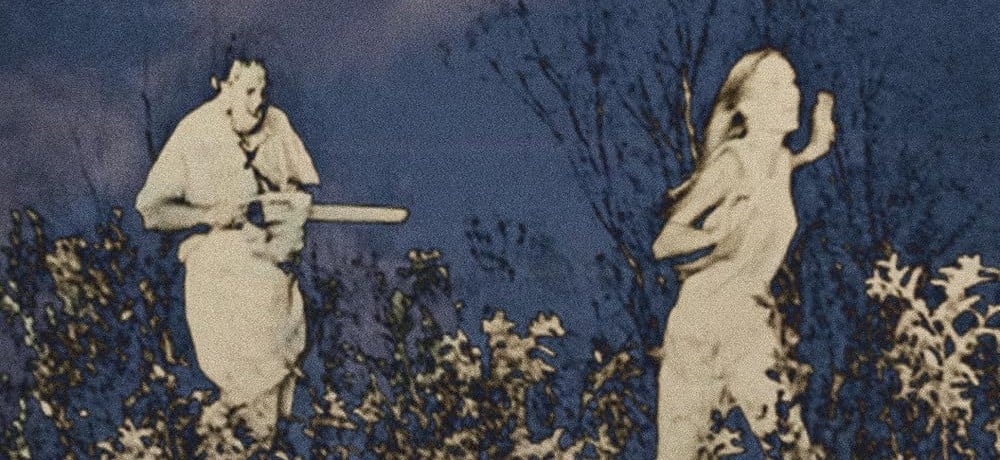






2024 is marking a lot of horror anniversaries, and one of the most notable ones is the 50 year birthday of Toby Hooper’s The Texas Chain Saw Massacre. Arguably one of the greatest and most impactful horror films ever made, it has withstood the test of time and remains a terrifying film that has stuck with fans for decades. What Hooper did with a great idea and a limited budget was initially dismissed by many, only to be evaluated again and again and has firmly cemented itself in film history as a masterpiece. In his latest doc, filmmaker Alexandre O. Philippe seeks to take a deep dive into this film and its impact through the eyes of some of its biggest fans.
Philippe is an amazing filmmaker who consistently dives into the world of cinema in a way that is critical and thought-provoking. Much like in his 2022 film Lynch/Oz, he incorporates the viewpoints and thoughts of his interviewees into the grander thesis of the film. While it’s clear that everyone involved has a love for the subject, the film is deeper than just being a surface-level lovefest. It’s a really smart examination of the film and its impact, and the different stories and viewpoints come together to create a fascinating dialogue that extends to the viewer. The film invites us to consider the perspectives of the interviewees, but also to examine our own relationship with the material. When did we first experience the horrors of Leatherface and his deranged family? What was the impact of that first viewing? What have we taken away from the film?
Over the course of the doc, we sit down with five different creatives to learn about their connection with TCM: Patton Oswalt, Takashi Miike, Alexandra Heller-Nicholas, Stephen King, and Karyn Kusama. Each interviewee talks about their relationship with the film - how they first encountered it, lasting impressions, and how they feel that Hooper's film has contributed to or reflected the culture surrounding it.
I love docs like these (and Philippe is particularly skilled in this area) where the focus is less on the story of how the film came to be and more about examining the film from a theoretical perspective. Don't get me wrong - making-of docs and celebratory docs are wonderful and I enjoy them, but there is something particularly fascinating about getting a group of people together and asking them to share their individual perspectives and histories with a specific piece of art. Because those perspectives are always going to be different.
Each of these people saw this film under different circumstances and at different times in their lives. They each have their own relationship with the material, and that relationship itself is organic, changing over time and experience. So when we hear their thoughts on the film, the conversation is about more than their opinions. It’s about how the film impacted them, how it left an imprint, and how they interpret the plot points and meaning.
It is these differing perspectives that lie at the heart of film criticism, and by bringing those into his work, Phillippe examines not just the film, but the reasons we love it and how it resonates with us all differently. It is through this lens that he celebrates the legacy and impact of The Texas Chain Saw Massacre. This film has been a part of the cinematic landscape for 50 years and still remains culturally relevant and important. This film celebrates that impact and invites the audience to engage with the legacy of the film in their own way.
Score: 5/5